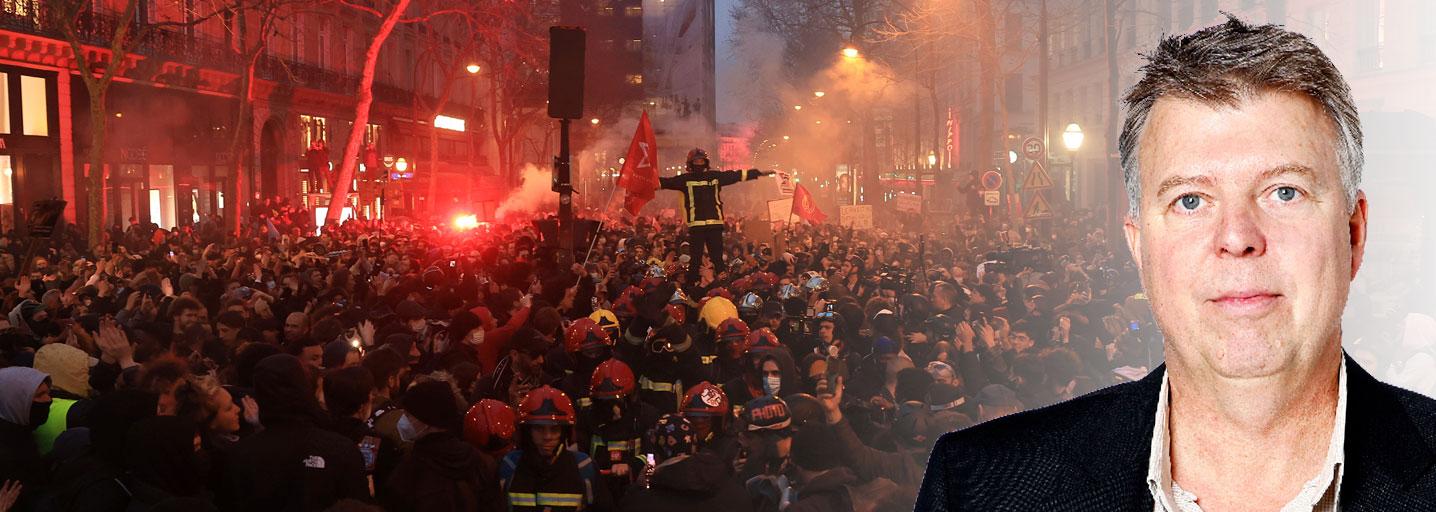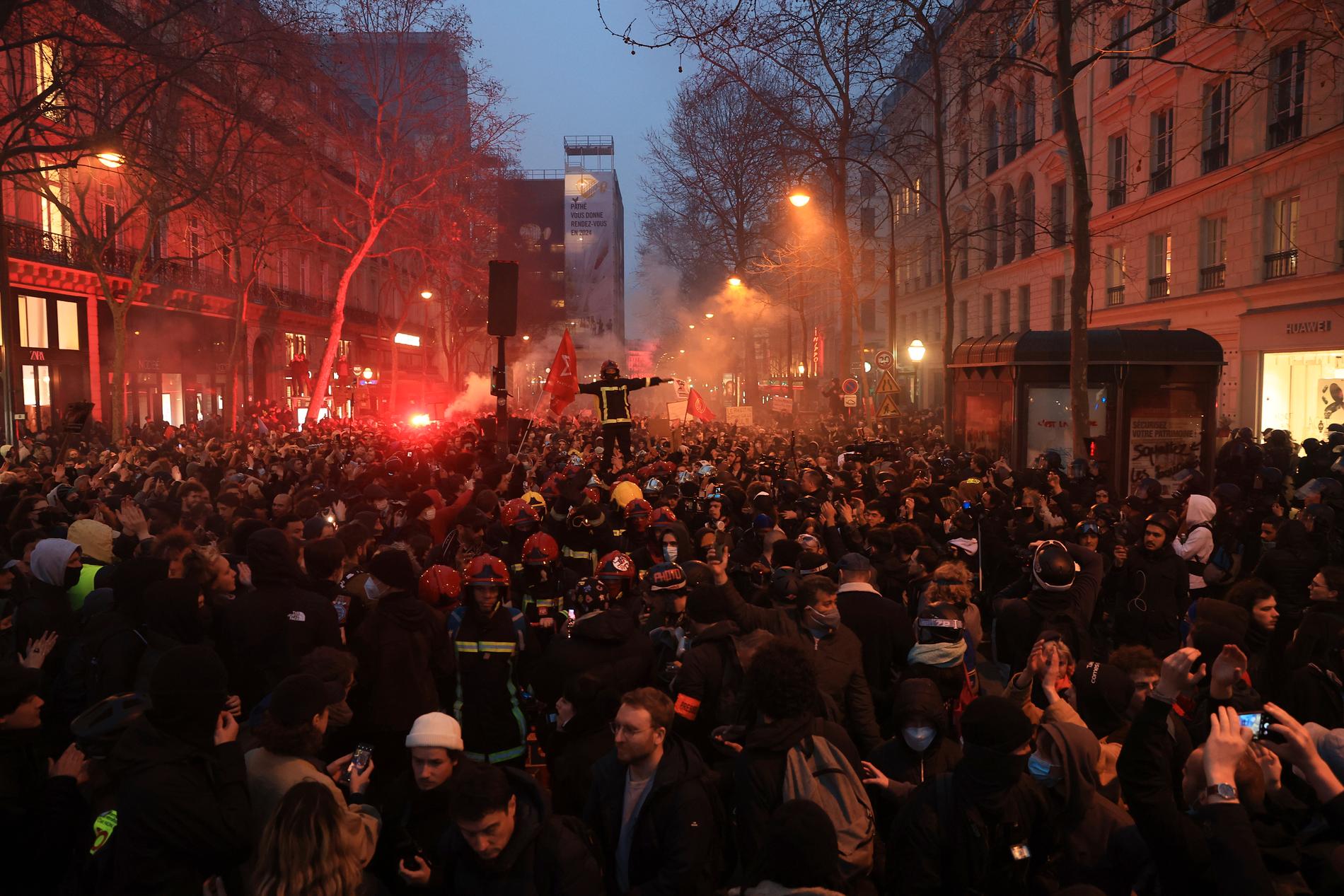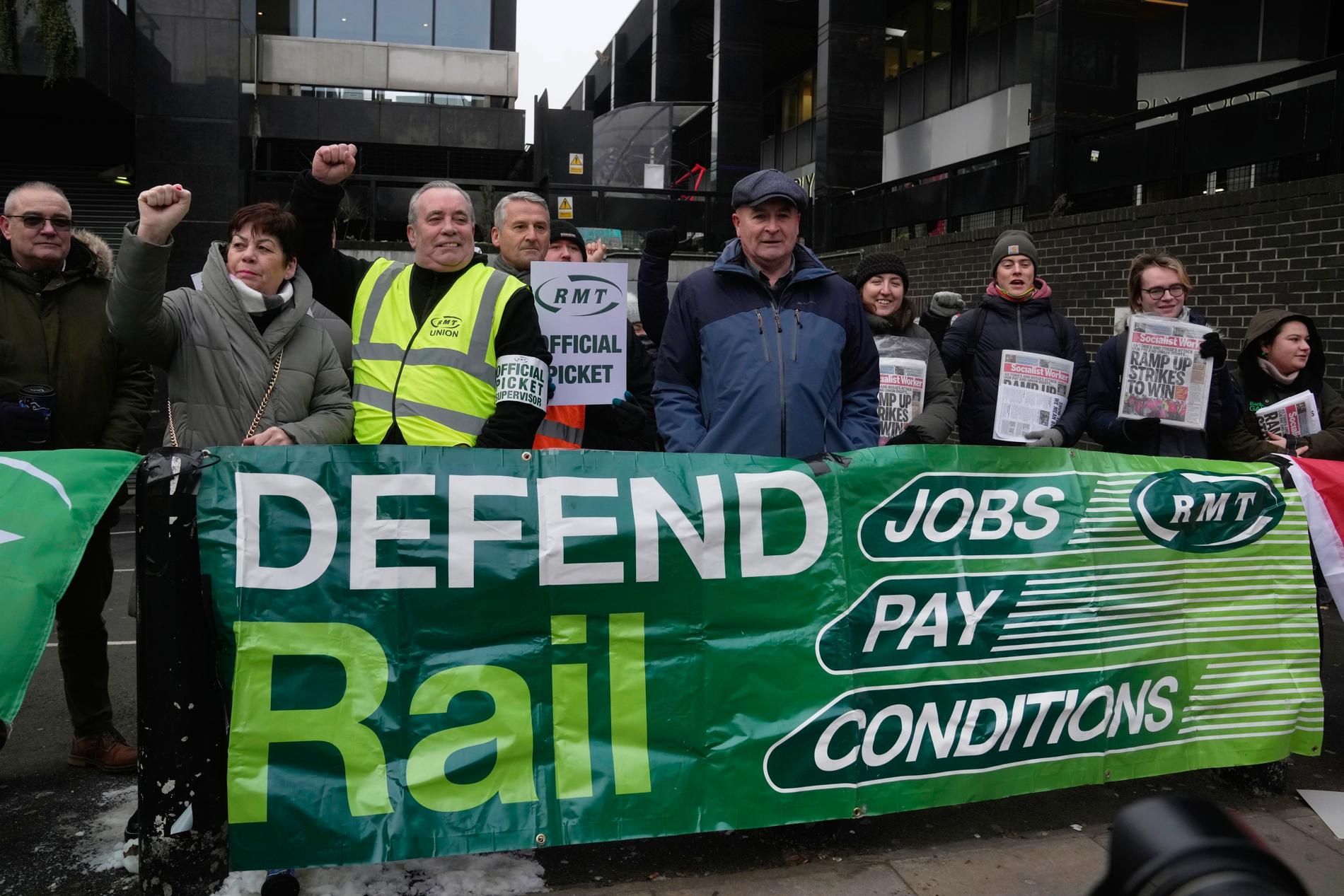
Wolfgang Hansson
That's why Swedes are so kind and docile
Published: Yesterday 19.45
This is a commenting text. Analysis and positions are the writer's.
COLUMNISTS
In a European comparison, the Swedes appear to be almost criminally kind and docile.
While the French, Germans and British take to the streets to protest against high food and electricity prices or deteriorating pensions, the Swedes stay at home and grumble and accept most things.
Mean - but not necessarily out of evil.
Most recently, it already started during the pandemic. The streets of Europe's major cities were filled with people outraged by restrictions and vaccine evidence. In Sweden, they were largely conspicuous by their absence.
It has continued over the past year with street protests and strikes in countries such as France,Britain, Britain and Germany.
Large protests have rocked Israel in recent weeks. Photo: Aurelien Morissard / AP
Germany was largely at a standstill yesterday as most of the country's transport workers went on strike. Buses, trains and flights were canceled during a one-day strike for higher wages.
New demonstrations await in France against President Macron's way of pushing through a higher retirement age. The police fear it will turn violent.
Britain has for some time been plagued by train strikes and picket strikes among healthcare workers who feel their work is undervalued.
In Israel, we have seen mass protests against Prime Minister Netanyahu's attempts to push through new laws that threaten to turn the Middle East's only democracy into a new Hungary.
In Sweden? Here the calm prevails.
Several strikes in London. Photo: AP
Get out of the TV couch
I thought last autumn that the galloping electricity prices would possibly make the Swedes get up from the TV sofa to wave placards in the street and shout slogans about lower prices. But not.
The violent inflation with increased food prices, rents and interest rates as a result causes people to grumble and be shocked by dissatisfaction, but no mass protests in the streets are to be seen.
Not even the agreement movement can get the Swedes out in any major demonstration marches. On the contrary, even the unions seem to be prepared to accept sharp real wage cuts. We buy the arguments of the authorities and the experts that large wage increases only drive inflation further, because it appears logical.
Perhaps the Swedes' willingness to protest is due to the fact that we do not have the same tradition of demonstrating in public as many other Europeans. Or we dislike extra-parliamentary methods and do not believe that protests should have any effect.
All surveys show that Swedes have a high level of trust in the state and authorities compared to many other countries. We simply trust that the authorities want us well. At least nothing bad.

Not a bad setup
Bidrar certainly means that we are marinated in the Saltsjöbads spirit, the one that says that employers and workers should compromise until a result that both can accept instead of striking. Everyone benefits from it.
Should there be a strike in Sweden, there will be order. First a notice and then a strike, although usually a negotiated solution. If you look at Sweden's economic prosperity, it has not been a bad plan.
Out in Europe, people take to the streets to vent their anger and frustration in community with others. To relieve the pressure and show those in control that you are not satisfied.
Many have a strong belief that the protests will lead to change. That the rulers should listen and yield.
Sometimes it works, but far from always.
Macron did not listen, but pushed through his pension increase from age 62 to 64 anyway.
British healthcare workers are still waiting for their hefty pay rises.
In Germany, where short so-called warning strikes are allowed even under the duty of peace, it almost always ends up with the workers getting half of what they ask for.
Can easily degenerate
Benjamin Netanyahu listened so intently that he postponed the approval of the new bills and promised to negotiate with the opposition. But everything indicates that he intends to push them through later.
The interesting thing is not whether people demonstrate and strike or not - but whether the actions lead to changes in political decisions. Strikingly often they don't. Demonstrating gives a feeling of being able to make one's voice heard and be involved in making an impact. But it is far from always bringing more money into the wallet.
Demonstrations can easily degenerate or be “kidnapped” by professional perpetrators of violence.
I find it hard to see the value of protests that degenerate into violence or destruction. In what way do burning bins, smashed shop windows and unhealthy rotting garbage contribute to better pensions for the French?
On the contrary, it is often the innocent who suffer in strikes and degenerate mass protests. Then I don't think of capitalists or rich company directors, but of ordinary, decent citizens.
Those who miss the flight to their dream vacation, who have the surgery canceled that they've been waiting for for six months or who can't go and visit their aging mother in the nursing home.
Sweden has the prime example
We rarely talk about that price when we celebrate the deed of people in other countries who go out and show their anger.
Isn't the more consensus-oriented Swedish model in fact often at least as successful?
At the same time, it is an important democratic right to be able to protest, one that Swedes should perhaps use a little more often instead of just showing their dissatisfaction at the ballot box every four years.
It can actually pay off. The question is whether Sweden does not have the prime example of how to create a successful protest movement.
When Greta Thunberg began her sit-in protest against climate emissions, she sat all alone in front of the Riksdag. A few years later, she led the worldwide youth movement Fridays for Future, which had a huge impact on those in power around the world.
Sometimes even us Swedes get really angry.


Inga kommentarer:
Skicka en kommentar